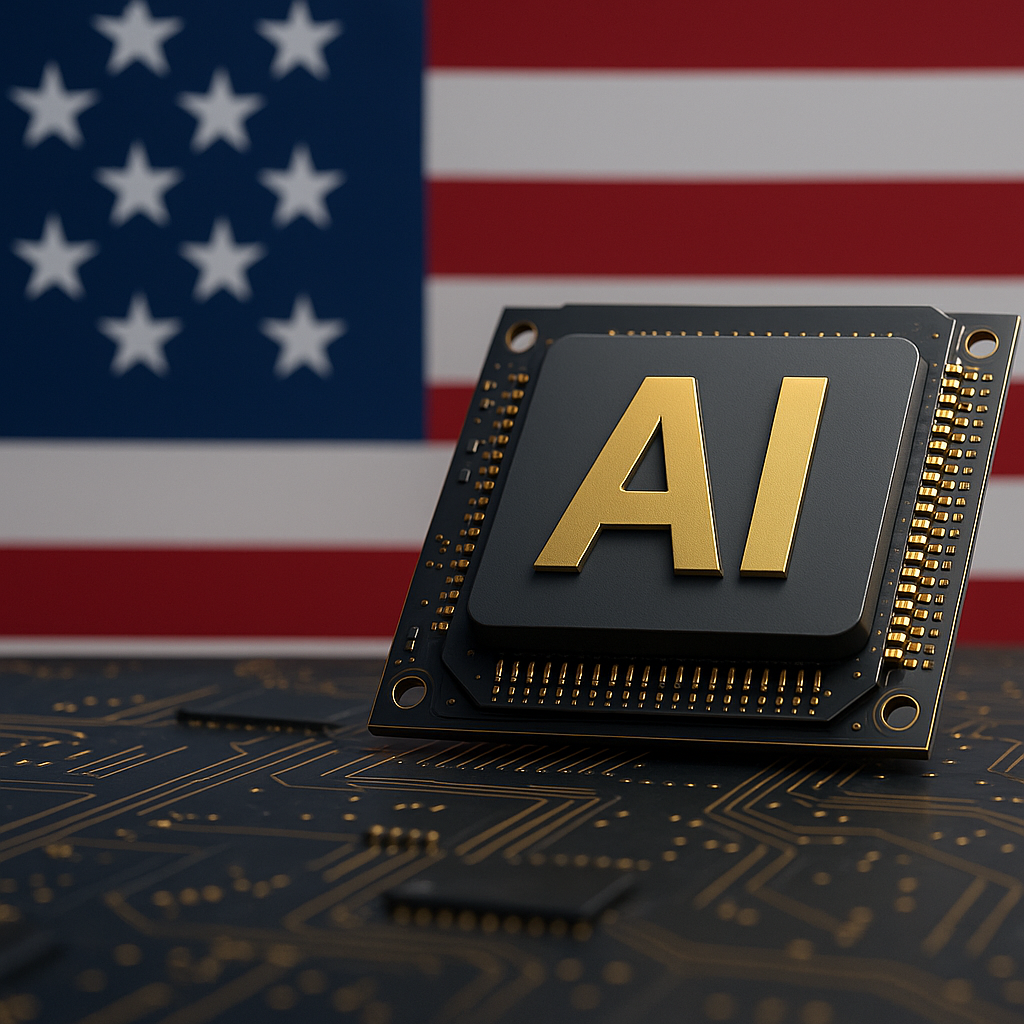Escalating tech tensions shake markets and raise new questions for investors in AI and semiconductors
In a move that has sent ripples through global financial markets, the U.S. Commerce Department has enacted fresh restrictions on the export of high-performance AI chips to China. The policy, which directly targets top-tier chips like Nvidia’s H20 and AMD’s MI308, aims to curb Beijing’s access to advanced computing power—but investors are feeling the shockwaves.
Shares of Nvidia fell 5.9% in response, erasing billions in market capitalization, while broader tech indices, including the Nasdaq 100, also pulled back. Nvidia, which had previously warned that further regulatory constraints could impact its bottom line, now anticipates a $5.5 billion revenue hit due to the new export rules.
Why This Matters for Investors
This latest development underscores the intensifying tech rivalry between the U.S. and China, now centered on artificial intelligence—a sector increasingly seen as both an economic engine and a strategic frontier.
From a market perspective, the repercussions are already evident. Tech-heavy ETFs and indexes have dipped, and semiconductor supply chains are under renewed scrutiny. For Nvidia and AMD, China represents a significant revenue stream. According to Bloomberg, roughly 20-25% of Nvidia’s data center revenues are tied to Chinese demand. These restrictions may not only delay deals but force chipmakers to develop lower-performance workarounds that comply with U.S. regulations—dampening margins.
Industry analysts from Morgan Stanley noted in a Wednesday report that “the regulatory overhang on the semiconductor sector remains one of the most pressing risks for 2025,” pointing to a likely reevaluation of growth forecasts across the AI chip market.
Future Trends to Watch
While short-term volatility is expected, investors should stay focused on the broader trajectory of AI development and hardware innovation:
- Geopolitical Tech Risk Premium: As governments treat AI and chips as national security assets, geopolitical risk will increasingly be priced into semiconductor stocks.
- Shift in Supply Chains: Companies like Nvidia may accelerate efforts to diversify supply chains and customer bases outside of China, potentially boosting investment in Southeast Asia and India.
- AI Demand Stays Strong: Despite restrictions, global demand for AI infrastructure remains robust. Major U.S. cloud providers—Amazon, Microsoft, and Google—continue to expand AI server capacity, which could buoy domestic chip sales even as Chinese markets tighten.
Credible References & Market Reactions
The new export rules were announced officially by the U.S. Department of Commerce and covered extensively by leading outlets such as Reuters, The Guardian, and AP News. Reuters quoted a senior Biden administration official stating the restrictions are part of a broader effort to “safeguard national security while preserving fair competition.”
Meanwhile, China’s Ministry of Commerce labeled the move “economic coercion,” hinting at potential retaliatory measures. While these remain unspecified, investors are watching closely for any response that could further disrupt trade in the tech sector.
Key Investment Insight
Investors should remain cautious yet opportunistic. Semiconductor and AI-related equities are likely to experience continued volatility in the coming weeks. Those with high China exposure may face earnings pressure, while domestic-focused chip firms could benefit from supply chain realignment.
Diversification remains essential. Consider balancing positions in global chipmakers with firms aligned with North American AI infrastructure growth. Additionally, ETFs that focus on AI development within OECD countries may provide safer exposure with reduced geopolitical risk.
Stay Ahead with MoneyNews.Today
As the AI arms race heats up and regulatory pressures reshape global tech markets, staying informed is more critical than ever. Follow MoneyNews.Today for daily, investor-focused insights into the developments that move markets.





